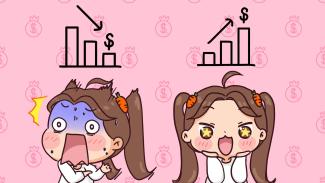
The Secret About Financial Professionals
By Gary Silverman, CFP®
I’m going to let you in on a little secret. Investment advisors are human. This is true regardless of whether they work for a big-name broker, an insurance agency, or are independent. Each and every one of them is human. And that’s a problem.
If you’ve read my columns, I’ve talked about a strange phenomenon among individual (meaning non-professional) investors. They seem to have a bias to get out of the market after it’s gone down and a penchant for getting into the market after it’s gone up. While they still, on average, make money, they don’t make near the money they would have if they had just left their investments in place.
Enter the professionals. You might call them financial planners, financial advisors, investment advisors, or some other such title (I’ll answer to just about anything). They do this for a living. You’d think they must be immune to the emotions brought on by a volatile—these days very volatile—market.
You’d think that, but you’d be wrong. Generally, they do better than most (or they likely wouldn’t survive in this business), but they are certainly not immune. You see, it’s that human thing. Humans are emotional creatures. It’s wired into our brains.
Numerous studies (and my anecdotal observations) show several trends. As markets peak, advisors tend to have a greater portion of client assets in stocks than normal. That’s fine on the way up, but a peak means that the next series of movements goes the other way. To see profits disappear on the downhill side can be a bit disheartening. Then when markets eventually hit their lows, cash and bond holdings in professionally managed accounts seem to grow leaving less money in stocks just as they start the climb of a new bull market.
Now, there may be some extenuating circumstances. Advisors have to follow their clients’ orders, and some clients when markets plummet tell their advisors to sell all of the stocks in their portfolios. And it is true that if they did nothing during a market decline, the percentage of stocks would have dropped because their value dropped.
But even taking that into consideration and given my own observations of what many investment professionals do, there is a tendency toward amateurish behavior on their part; those advisors move to a safer configuration after the markets had gone down and more aggressive positions after markets soar. Panic and euphoria aren’t reserved for amateurs.
This isn’t to imply that all investment advisors do a poor job of investing; and it doesn’t mean that all or even a majority of them are not doing a professional job. But it does show that they are human after all, subject to the foibles that plague us all.
May God protect the innocents and may we help in a meaningful way.

